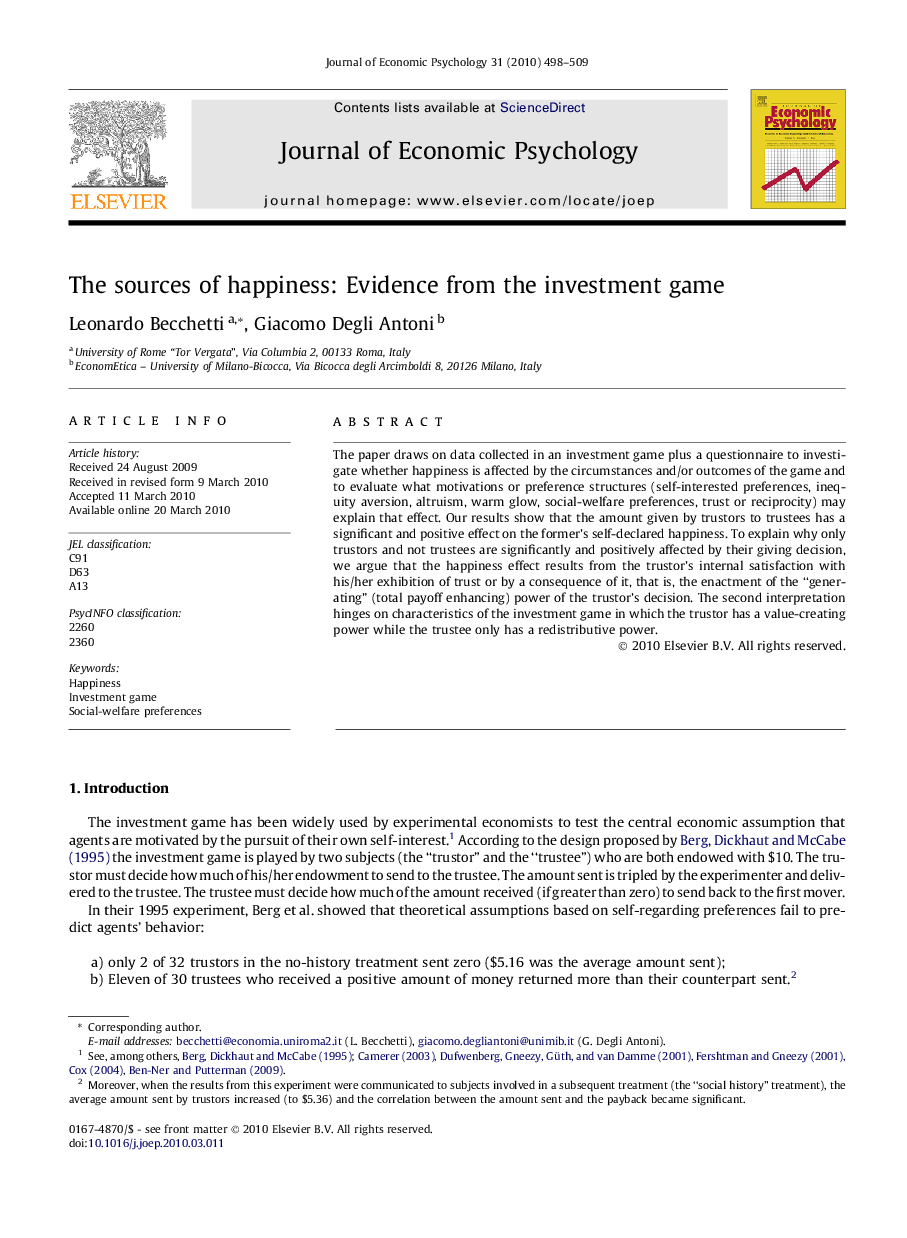| Article ID | Journal | Published Year | Pages | File Type |
|---|---|---|---|---|
| 885273 | Journal of Economic Psychology | 2010 | 12 Pages |
The paper draws on data collected in an investment game plus a questionnaire to investigate whether happiness is affected by the circumstances and/or outcomes of the game and to evaluate what motivations or preference structures (self-interested preferences, inequity aversion, altruism, warm glow, social-welfare preferences, trust or reciprocity) may explain that effect. Our results show that the amount given by trustors to trustees has a significant and positive effect on the former’s self-declared happiness. To explain why only trustors and not trustees are significantly and positively affected by their giving decision, we argue that the happiness effect results from the trustor’s internal satisfaction with his/her exhibition of trust or by a consequence of it, that is, the enactment of the “generating” (total payoff enhancing) power of the trustor’s decision. The second interpretation hinges on characteristics of the investment game in which the trustor has a value-creating power while the trustee only has a redistributive power.
